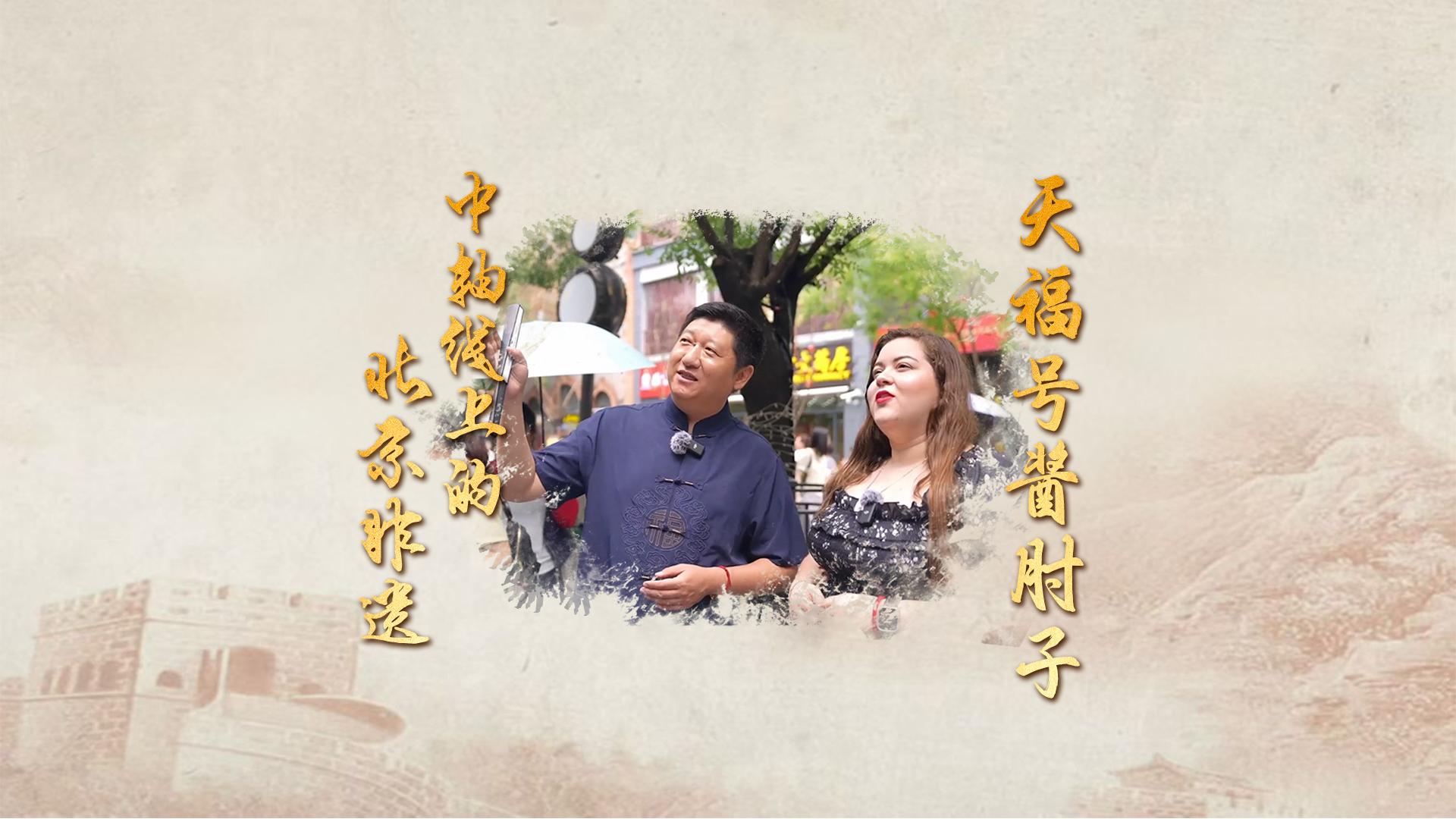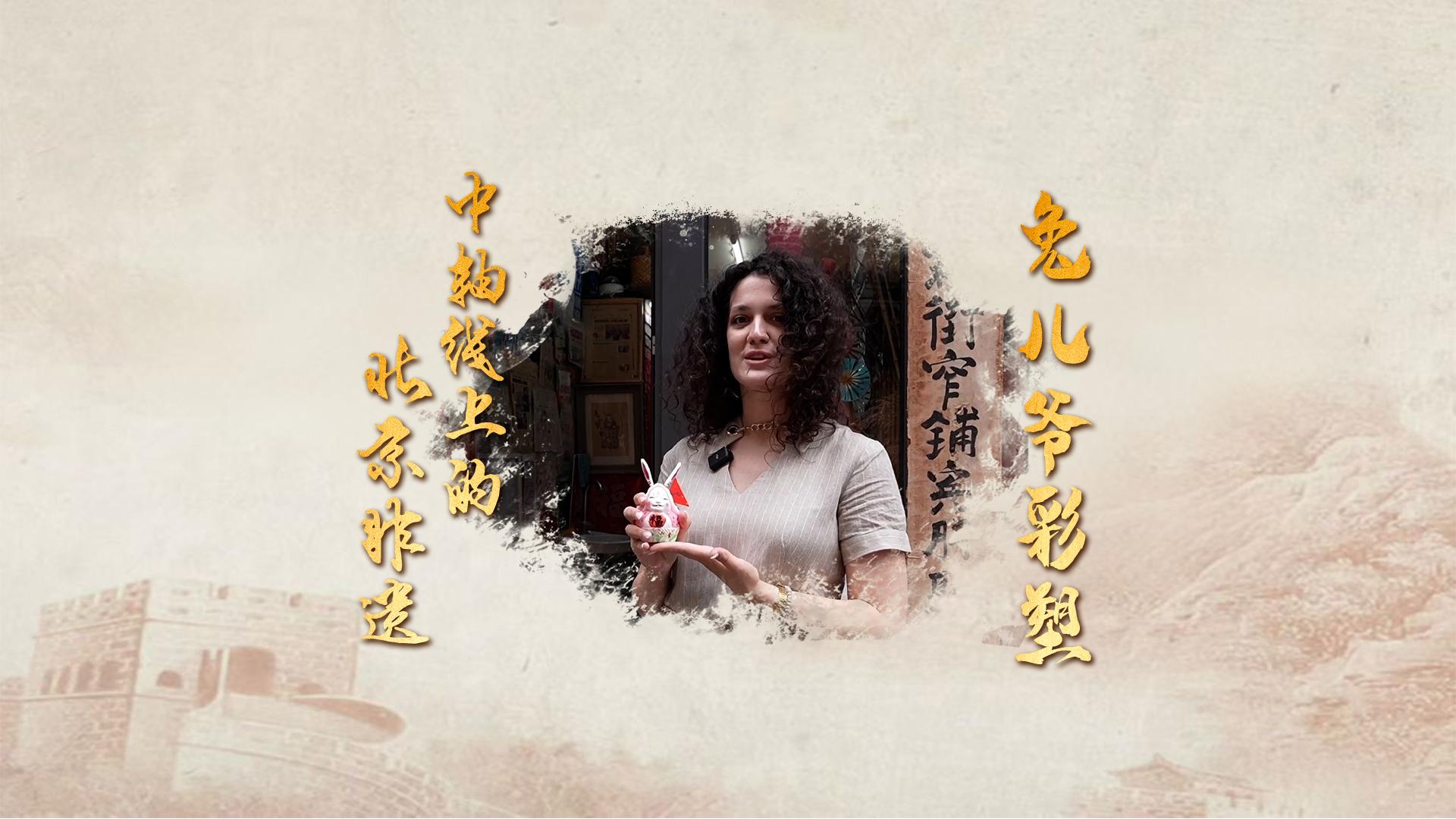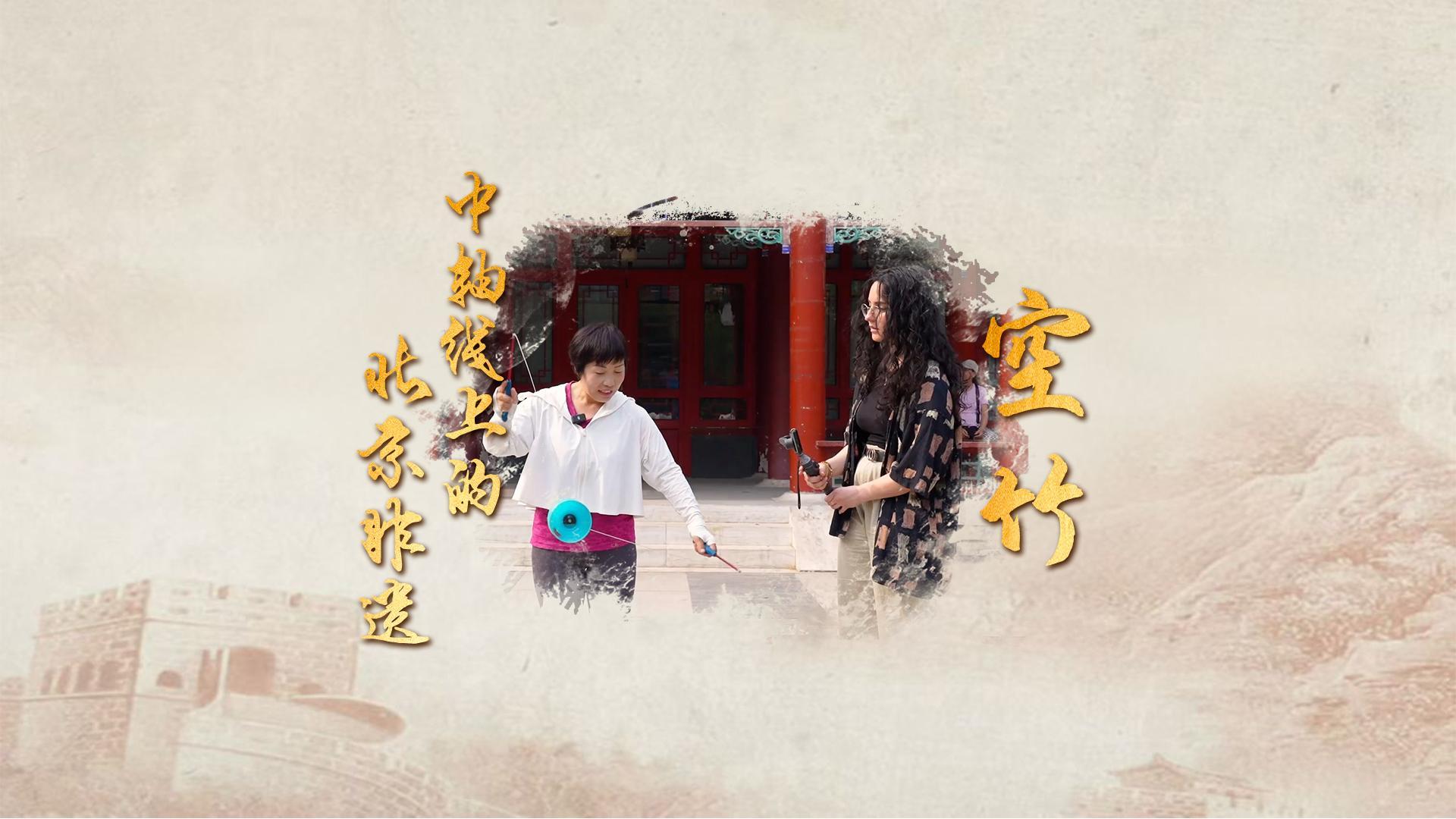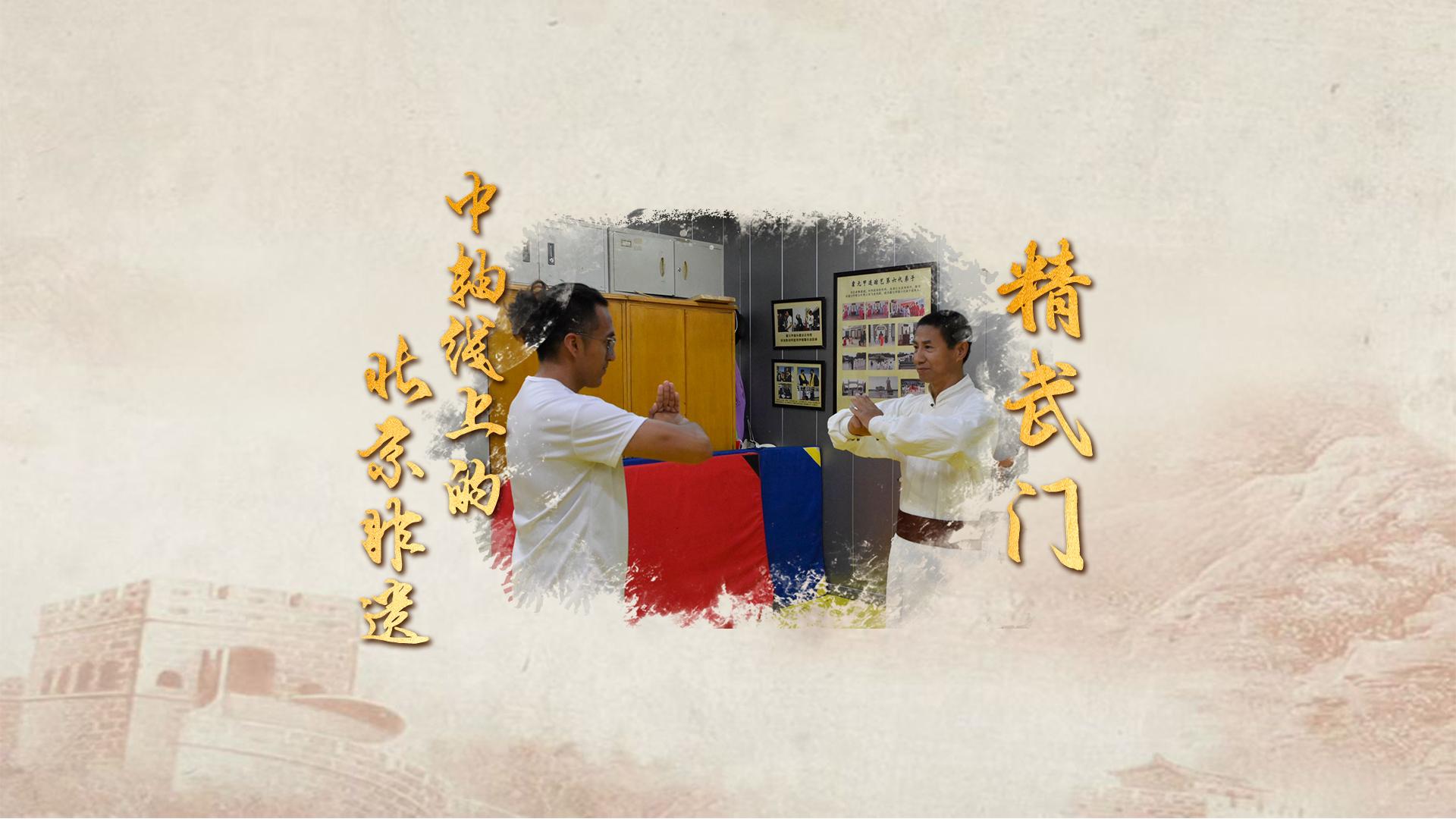北京琴書:來自北京的“土言土語”
撰寫:陳一 翻譯:孫巍偉
“此一去下山探母,千萬要小心。走路要走小路,繞過城鎮。怕的是稍有不慎,被官府發現他的人……”站似青竹,聲若洪鐘,言如珠玉,擲地有聲。這段驚羨四座的唱詞來自北京琴書代表性傳承人王樹才老師在天壇南門劇場的琴書表演《李逵下山》。北京琴書是北京地區古曲藝術中具有代表性的曲種,形式是一人站唱,以左手敲擊鐵片,右手執鼓楗擊扁鼓,伴奏樂器為揚琴和四胡。它是“説似唱、唱似説”,唱腔中夾用説白,突出表現北京土言土語,板式有快、慢、散,極大豐富表演和演唱效果。
"When you go down the mountain to visit your mother, be extremely careful. Take the narrow paths, steering clear of the towns. The slightest slip could lead to discovery by government soldiers… " These are the lyrics sung by Wang Shucai, an esteemed inheritor of Beijing Qinshu, as he performs “Likui Descending the Mountain” at the Tiantan Nanmen Theatre in Beijing. Throughout his performance, he stands erect like bamboo, delivering his lines with both elegance and power in a voice resonating like a temple bell. Beijing Qinshu is a quintessential example of local ancient music, performed solo by a standing artist, who uses his/her left hand to strike iron clappers while holding a drumstick in the right hand to beat a flat drum. Accompanying the performance are the yangqin (a type of Chinese dulcimer) and sihu (a four-stringed instrument). Such performance accentuates the Beijing vernacular, skillfully intertwining speaking with singing, where spoken elements effortlessly merge with melodic lyrics, embodying the unique style of “speaking as if singing, singing as if speaking”. And its tempos vary between fast, slow, and free-flowing, greatly enhancing the performance and vocal dynamics.
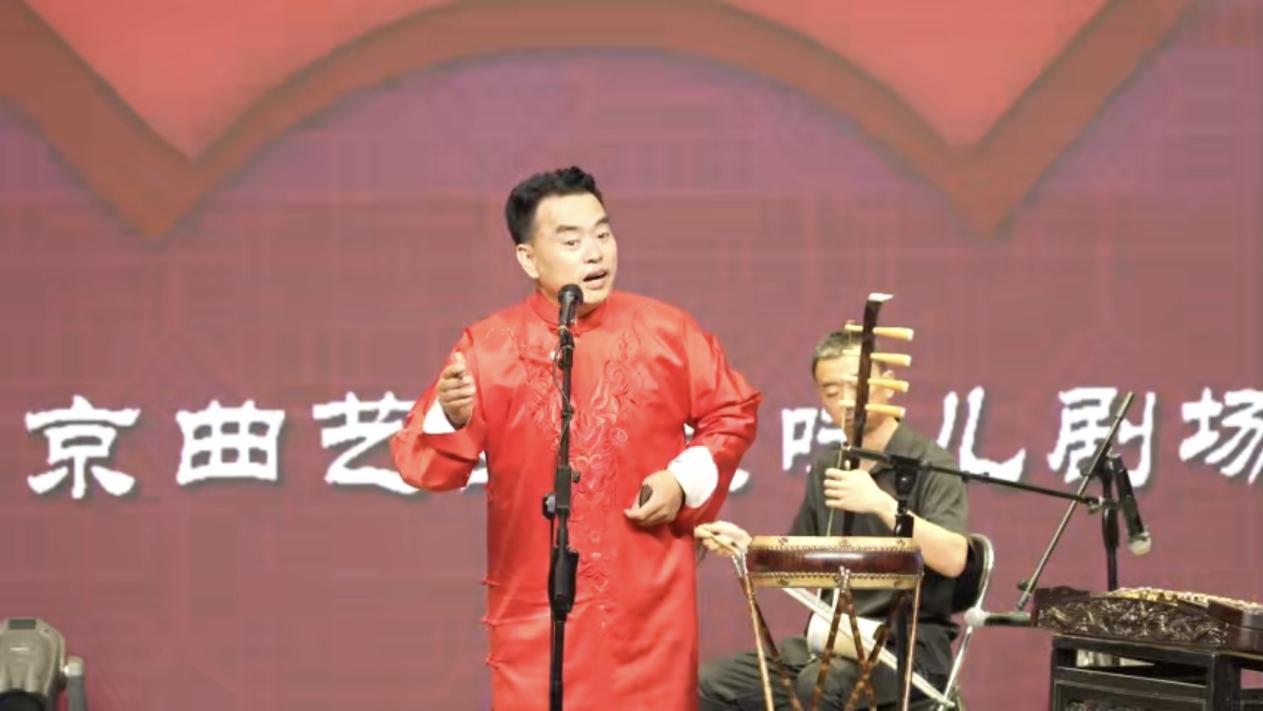
王樹才表演北京琴書《李逵下山》
Wang Shucai is performing the Beijing Qinshu piece "Li Kui Descending the Mountain"
王樹才是唯一一名以北京琴書為業的專業古曲演員,近年來,他除了演繹師父關學曾的經典唱段,也創作出一大批反映時代變遷,講述古都風貌的優秀作品,如反映京城衚同變遷的《東四衚同》、反映古代京城水系連通故事的《郭守敬》等。據王樹才介紹,北京琴書源自大興採育和通州馬駒橋一帶,是最古老的舞曲形式之一,最初名為單琴大鼓或五音大鼓,後由他的師父關學曾先生更作“北京琴書”。“1951年秋天全國文藝調研報幕的時候,有的叫‘西河’大鼓,有的叫‘京韻’大鼓,到關學曾先生這一報——琴書,大家都不知道是哪兒的。”王樹才講述到。“後來我們先生便和他的琴師吳長寶先生商量:琴書説的是北京的事兒,唱的是北京的曲兒,吐的是北京的字兒,就定名為‘北京’琴書。”
Wang Shucai is the only professional artist who has dedicated his career to Beijing Qinshu. In recent years, he has not only carried on the legacy of his mentor, Guan Xuezeng, by continuing to perform his teacher’s classic pieces, but also created a large number of outstanding original works that reflect the changes of the times and depict the the features of the ancient capital. Examples include "Dongsi Hutong", which showcases the transformations of the old alleys in Beijing, and "Guo Shoujing", which narrates the stories of the interconnected waterways in ancient Beijing. According to Wang Shucai, Beijing Qinshu originated in the area of Caiyu in Daxing District and Ma Juqiao in Tongzhou District, making it one of the oldest dance music forms. Initially known as "Danqin Daguo" or "Wuyin Daguo", it was later renamed "Beijing Qinshu" by his mentor, Mr. Guan Xuezeng. "During the national art and culture showcase in the autumn of 1951, programs like ‘Xihe Dagu’ and “Jingyun Dagu’ were announced with clear origins. But when Mr. Guan Xuezeng said 'Qinshu', no one could tell where it originated," recounted Wang Shucai. "Later, my mentor discussed with Mr. Wu Changbao, the yangqin performer on his team, and they decided that it should be named 'Beijing' Qinshu, since it talks about what happens in Beijing, sings in Beijing tunes, and speaks in Beijing’s dialect, "
近年來,王樹才致力於通過以新媒體為例的多種渠道,推動北京琴書走出京都甚至打破國門,讓外國友人也能欣賞這音律優美的東方古韻,領略非遺文化的魅力。王樹才曾指導過來自摩洛哥及新加坡等多地的外國學生,也和他們一起參加過《星光大道》等綜藝節目。“只要你會説中國話,就能學北京琴書。”王樹才説。“如果有同學來找到我,想要學習琴書,我一定會認真地教,積極傳授咱們這門民族藝術。”
In recent years, Wang Shucai has devoted himself to promoting Beijing Qinshu through various avenues, including new media as a key channel, striving for it to transcend the boundaries of Beijing and even cross national borders, enabling foreign friends to appreciate the melodious ancient charm of the East and experience the allure of intangible cultural heritage. Wang Shucai has mentored students from diverse locations such as Morocco and Singapore, and together they have participated in variety shows like "Star Avenue". "As long as you can speak Chinese, you can learn Beijing Qinshu," says Wang Shucai. "If any students come to me with a desire to learn Qinshu, I will teach them earnestly and actively pass on this national art form."
而在開頭提到的《李逵下山》表演的觀眾中,就有一位來自越南的朋友黃盛豐。他被這段精彩絕倫的琴書演繹所吸引,演出結束之後來到後臺與王樹才老師交流,對方也盛情歡迎,傾囊相授一些琴書的基礎技法。
During the "Li Kui Descending the Mountain" performance mentioned earlier, among the spectators was Huang Shengfeng, a young man from Vietnam. Captivated by Wang Shucai’s enchanting display of Qinshu, he ventured backstage to meet Mr. Wang after the curtain fell. Teacher Wang warmly welcomed him and shared some foundational skills of Qinshu performance with him.
“琴書聽著簡單,其實要掌握那個韻味也不容易。”王樹才回憶道。“我當年和我們的老師琴書泰斗關學曾先生學習的時候,光是一句就學了六個月。”在老師的悉心帶領下,黃盛豐開始嘗試著發音找調,在摸索和實踐中逐漸加深了對琴書的了解。“誰都愛聽,長命百歲,這句吉祥話,啊呀——”這是三十多歲初學琴書的王樹才曾花費半年才得以流利掌握的唱段,如今從黃盛豐的口中以青澀的發音和稚嫩的形式吐出,像是時空上的重合與銜接,像是一條貫穿古今、連接中外的奔流不息的澎湃江河。
"Qinshu may sound simple, but getting the hang of its essence is far from easy," reminisced Wang Shucai. "When I was studying under the guidance of Mr. Guan Xuezeng, the Qinshu master, it took me six months to learn just one sentence." Under the meticulous coaching of Wang Shucai, Huang Shengfeng began experimenting with pronunciation and melody, gradually deepening his understanding of Qinshu. "Everyone enjoys hearing the blessing: May you live a long and prosperous life, ah—" This is a verse from Qinshu that Teacher Wang, who started learning in his thirties, spent half a year perfecting until he could sing it fluently. Now, it emerged from Huang's lips, though with a touch of inexperience in pronunciation and a hint of rawness in style, reflecting the journey of mastery that bridges time and space, like a continuous river flowing from ancient to modern, connecting East and West.
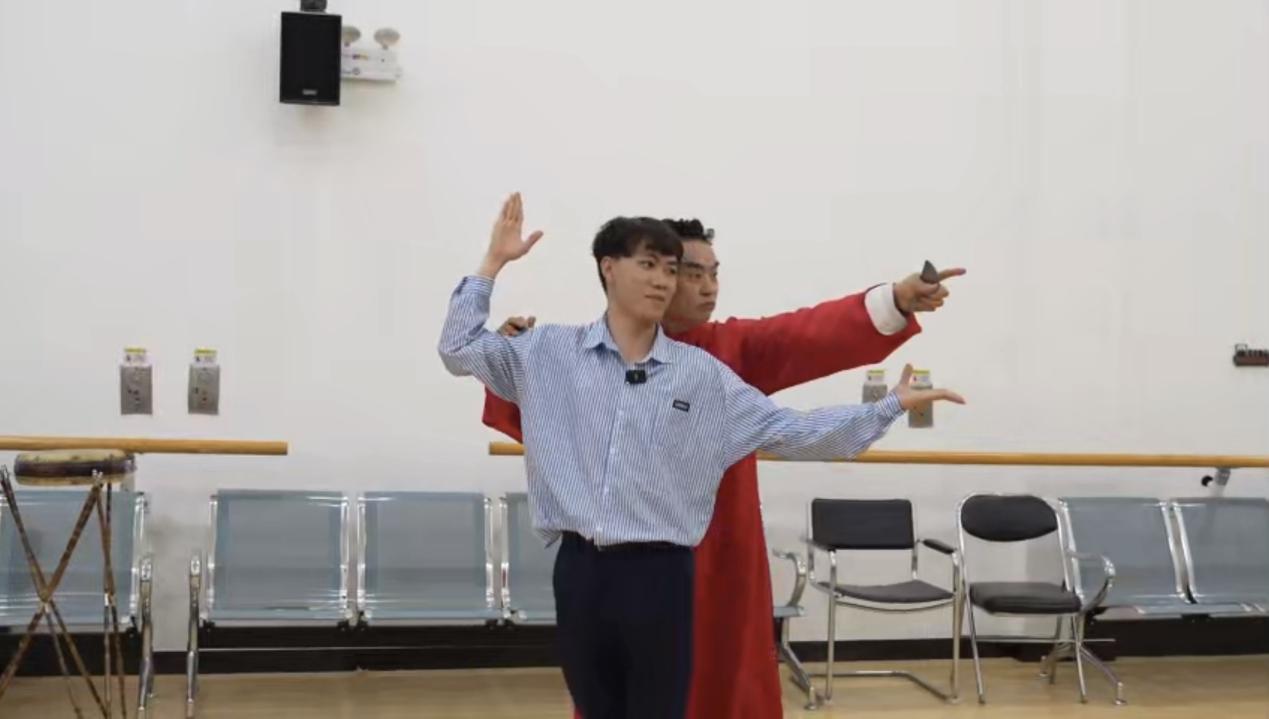
王樹才教授黃盛豐演繹北京琴書
Wang Shucai is mentoring Huang Shengfeng in the performance of Beijing Qinshu
現在,北京曲藝團和北京小學萬年花城分校聯合舉辦了曲藝班,教授包括北京琴書、京東大鼓、單弦等非遺文化在內的一系列課程。王樹才説,過去有句俗語叫做“活保人,人保活”,倘若沒有藝術家來呈現,再好的作品也會是一杯白開水。而非遺傳承人所做的正是將這白水燒燙煮沸,添以茶葉,煥其甘香。“當初我們先生收我做學徒,義務免費傳授,一分錢也不收,甚至還管炸醬面。有時候坐車回家兜裏沒錢了,先生還給你100塊錢讓你打車。”王樹才講述到。
Now, Beijing Opera Traditional Folk Arts Troupe and Wan Nian Huacheng Branch, Beijing Primary School have jointly established a traditional folk arts training class, offering a range of courses encompassing various intangible cultural heritage programs, including Beijing Qinshu, Jingdong Dagu, and Danxian. Wang Shucai recalled an old saying, "The art sustains the artist, and the artist sustains the art.” Without artists to breathe life into it, even the most exquisite work would be as bland as plain water. It falls to the inheritors of intangible cultural heritage to transform this water into boiling tea, enhancing its fragrance with tea leaves. "When my mentor took me on as his apprentice, he taught me gratis, without charging a single penny, and even provided me with fried sauce noodles. Sometimes when I didn't have enough money for the bus fare home, he would generously give me 100 yuan for a taxi ride," recounted Wang Shucai.
正如王樹才所説,非遺傳承如同擇水煮茶、曠原植木,是一個不斷承接與開闢的過程。從古至今一位又一位的非遺傳承人就好似無私燃燒的蠟炬,以一己之火光,亮天下之蒼穹。從黃盛豐口中一句脆生生的“長命百歲吉祥話”開始,未來還會有更多這樣動人的故事出現,將中國非物質文化遺産的洪亮的聲音傳遞下去。
As Mr. Wang elaborated, inheriting intangible cultural heritage is like choosing water for tea or planting trees in open spaces—a constant cycle of absorbing and innovating. Throughout the ages, these dedicated inheritors have been like selfless candles, lighting up the world with their own flame. Starting with the crisp "May you live a long and prosperous life" from Huang Shengfeng, there will continue to be more such touching tales, resonating with the powerful voice of China's intangible cultural heritage and carrying it forward into the future.

